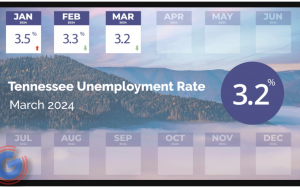The chairman of the Senate labor committee said that the final "Overtime Rule" released Wednesday "will hurt Tennessee families paying for college, increasing annual tuition at one Tennessee independent college by an estimated $850 per student," and announced he will soon introduce a Congressional Review Act resolution to block the rule and "protect Tennessee colleges, charitable nonprofits, employers and workers."
The department's final rule released today will more than double the salary threshold under which employees qualify for overtime pay, resulting in students facing higher costs and workers having less flexibility and opportunity for advancement in the workplace.
"If the president wants to go around talking about keeping college costs down, how can he justify a rule that could cost some students in Tennessee nearly $850 per year in increased tuition?" said Senator Lamar Alexander (R-Tenn.). "Senator Scott and I have introduced legislation to block this rule and ensure the administration cannot create a future rule without first doing a full, accurate economic study on its impact--in particular on small businesses, nonprofits, and colleges and universities around the country--a common-sense step that should have happened in the first place. Senator Johnson and I will also be introducing a Congressional Review Act resolution of disapproval on this rule in the coming days to protect Tennessee colleges and businesses from its harmful effects."
At an Appropriations subcommittee hearing on March 17, Senator Alexander asked U.S. Secretary of Labor Tom Perez why the Labor Department would move forward with its Overtime Rule "if the president is going to go around, saying 'we want to keep college costs down.'"
At least five independent colleges in Tennessee are expecting their costs to increase more than $1 million in the first year under the new rule, and several others expect costs to increase more than $600,000 in the first year. Because of the rule's annual indexing provision starting in 2020 the increased costs will only continue to grow.
Also on March 17, Senator Alexander joined Senator Tim Scott (R-S.C.), House Subcommittee on Workforce Protections Chairman Tim Walberg (R-Mich.) and House Committee on Education and the Workforce Chairman John Kline (R-Minn.) in introducing the Protecting Workplace Advancement and Opportunity Act, which will:
- Prevent the department from making final a proposal that will limit opportunities for employees and place significant burdens on job creators;
- Require the department to fully and accurately consider the economic impact of any rule on small businesses, nonprofits, schools, and others who will be affected;
- Ensure future changes to the salary threshold accurately reflect the economic realities facing workers and employers by making clear automatic increases are not allowed under current law; and
- Promote transparency and accountability by requiring any changes to the duties tests be made available for public review and comment.












